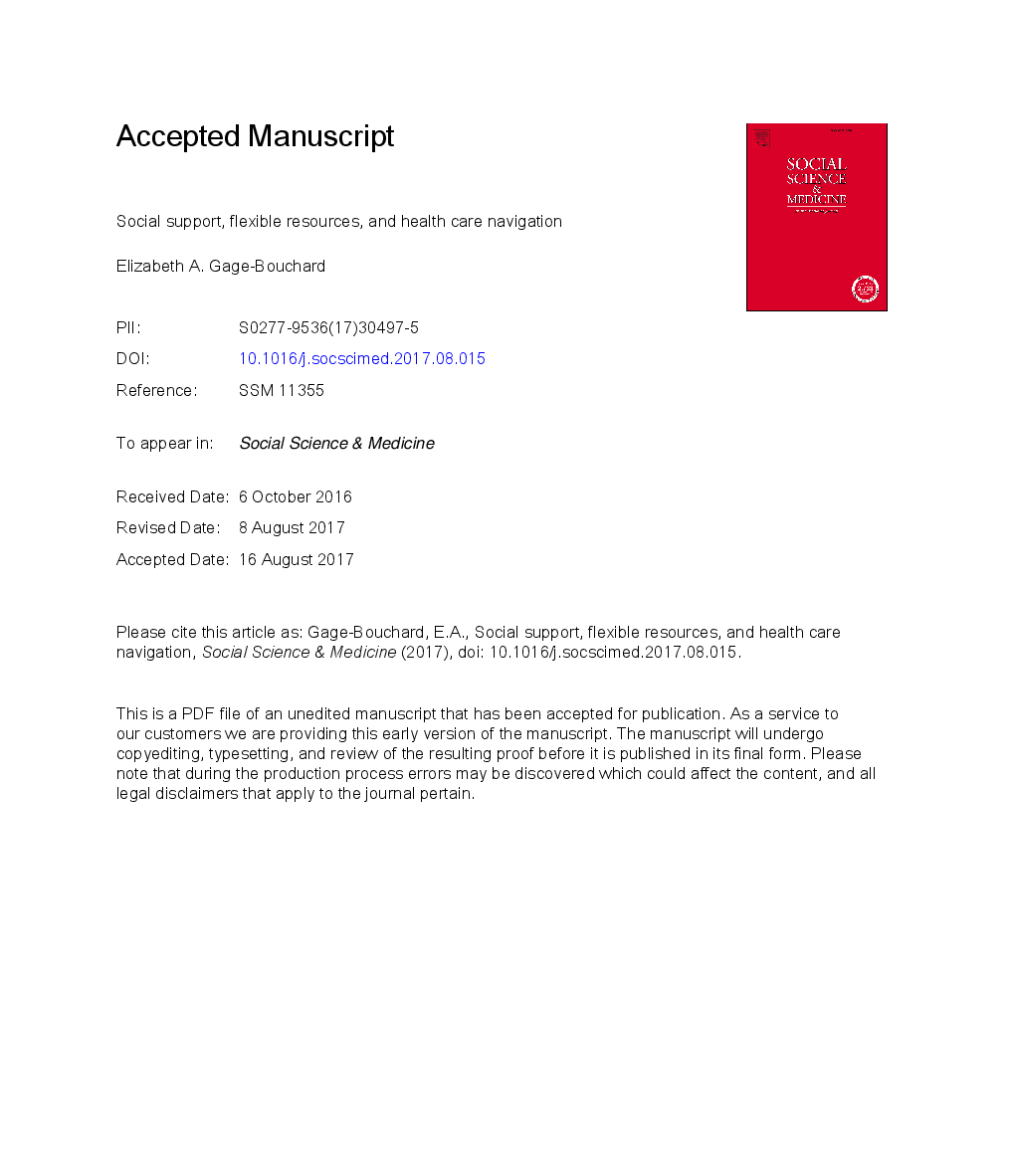ترجمه فارسی عنوان مقاله
حمایت اجتماعی، منابع انعطاف پذیر و ناوبری مراقبت های بهداشتی
عنوان انگلیسی
Social support, flexible resources, and health care navigation
| کد مقاله | سال انتشار | تعداد صفحات مقاله انگلیسی |
|---|---|---|
| 130086 | 2017 | 31 صفحه PDF |
منبع

Publisher : Elsevier - Science Direct (الزویر - ساینس دایرکت)
Journal : Social Science & Medicine, Volume 190, October 2017, Pages 111-118
ترجمه کلمات کلیدی
ایالات متحده، حمایت اجتماعی، تعامل بیمار و ارائه دهنده، ارتباطات سلامت، فرهنگ،
کلمات کلیدی انگلیسی
United States; Social support; Patient-provider interactions; Health communication; Culture;

